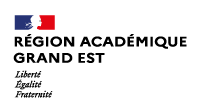Bonjour,
J'utilise ce forum car le cours sur la table ronde "Le Futur de Mahara" n'a pas été créé sur la plateforme. Je vous laisse envoyer ce message à toute autre personne qui serait intéressée par les propos ci-dessous.
Tout d'abord pour aller de l'avant avec le relancent de la communauté je vous laisse contacter soit
votre serviteur : djan@mac.com
Anne Garnavault : anne.garnavault@unicaen.fr
afin que nous puissions vous recontacter et former le groupe de travail dont vous avons discuté vendredi dernier.
Ensuite, le mode de financement de Mahara a été décidé et publié. Je vous mets les texte ci-dessous en anglais.
Les prix sont ici :
https://mahara.org/view/view.php?id=137229On arrive à 0,30 ct d'euro environ pour 1'000 étudiants actifs. Et cela reste négociable d'après le texte ci-dessous.
Je reste à disposition pour toute question ou remarque de votre part.
Avec mes meilleurs messages,
Dominique-Alain Jan
Hello,
In April, we announced in the forum post ‘Resetting the foundations for a sustainable future of Mahara' how the Mahara project was changing the way code was going to be made available. We outlined the reasons why a change was required, and considerations for how the Mahara project be funded going forward. We invited consultation with the Mahara community on potential funding models.
We would like to thank everybody who has engaged in the consultation sessions since. In these we highlighted that Catalyst firmly believes in Free Libre Open Source Software (FLOSS) and is not planning on a change in license from the current GNU GPL v.3. The freedoms to inspect, customise, and build on the core code remain.
However, since there are not many regular community contributors, most of the work had to be performed by Catalyst, and over the last 16+ years we have volunteered hundreds of thousands of hours to the community, which is not sustainable for the project any more, and we needed to look for a different solution to continue with the Mahara project.
That noted, we acknowledge that the charging of a fee for access to the core code is a major shift in how the Mahara project will operate in the future. It is however, a necessary step to ensure that the software can continue to be sustainably developed, providing benefits to everyone in the community.
Selected model
One of the goals of reviewing how the project can be funded more sustainably was to find a way that would involve all organisations using Mahara and to share costs more equitably. Over the years, Catalyst has implemented and explored a number of business strategies to support an open source project, in particular offering professional services, such as development, support, and managed services; offering premium services, such as the Extended Security Support; bringing partners on board through the Partner Programme; and crowd funding. However, none of these strategies resulted in sustained and continued funds to come in for the Mahara project, which necessitated looking for a different strategy.
We have now settled on an annual paid subscription model for organisations. The model also caters for supporting individual contributors. We took community feedback into consideration with this model, striking the balance between anticipated financial viability, organisations’ use, and the fact that this is a software only, not a managed services model.
The main elements of the subscription for organisations are:
- Banded model: Pricing is based on usage bands to allow for adding of a certain number of additional accounts without incurring an immediate update in fees.
- Based on the number of active accounts over the preceding 12 months (or an estimated use over the next 12 months for organisations not yet using Mahara) instead of the total number of registered accounts. In this, we acknowledge that usage varies over time and also that some organisations create accounts automatically that are then not always used.
- Standard subscription and enterprise subscription options to cater to organisations requiring additional support.
- Self-hosting or support by a service provider are still possible to give organisations flexibility and continued sustainability for their operation.
- License remains GNU GPL v. 3, giving you the freedoms to inspect, customise, and build on.
The components of each subscription are outlined on the subscription page.
Way forward
The subscription takes effect immediately for those wanting to work with Mahara 23.04 and / or receive the latest minor point updates for all other supported versions of Mahara. We are finalising the subscription contract terms and accompanying information for the website and will publish them as soon as possible. You can email subscription@mahara.org if you have questions.
Benefits of this change to the community
We see far reaching benefits for the community with the Mahara project moving to a subscription model. If supported by the community, it will allow for the sustained, continued development of Mahara, making it possible to have a defined roadmap over time and embark on larger projects that benefit everyone. It will allow organisations and contributors a more clearly defined path to have their opinion heard about the future of Mahara and influence the roadmap.
It will still be possible to contribute changes and new features directly when they are approved by the Mahara product team. In addition, infrastructural changes that are often beyond the possibilities of a single organisation can be undertaken.
To be clear, organisations will still continue to be able to self host Mahara, or work with a service provider of their choice as that is also a freedom that is important to us. We understand that organisations have varying jurisdictional and data protection requirements and thus need to use software that offers them the freedom to decide where their data is hosted and who has access to it.
Thank you
Kristina





